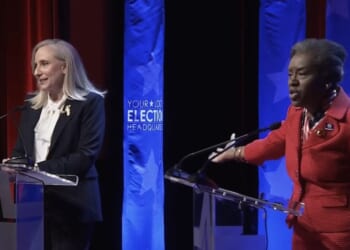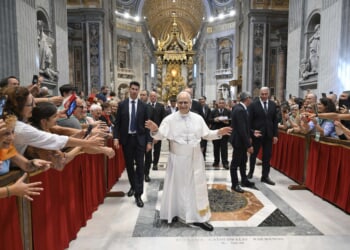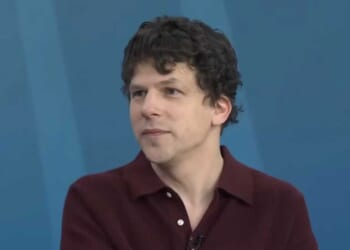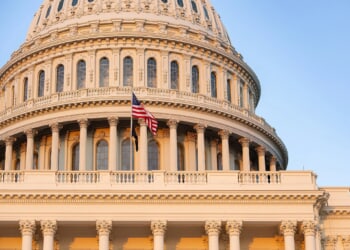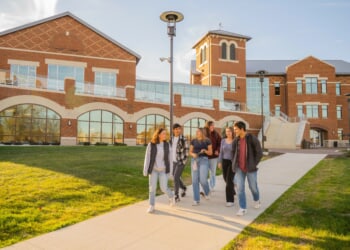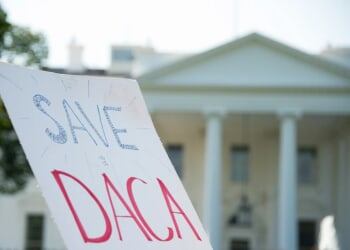The other day, someone asked me why I thought the great epic by Torquato Tasso, Jerusalem Delivered, no longer seems to be remembered by anybody outside of Italy. I was the man to ask, because I had brought up the subject, and I had translated the epic into English verse, published in 2000. In reply, I said that we have little notion of how genuinely multicultural the poets, artists, and composers of the nineteenth century were. I noted that almost all of this sort of mutual enrichment was soon to be lost.
Magical Keys come in the “conservative” variety too, or, perhaps more accurately, in the classical liberal variety.
I then gave examples of how it used to be. Longfellow, as a young man, spent a year or so in Europe to learn the modern languages, and he ended up translating The Divine Comedy, and reading the Finnish epic Kalevala, whose meter he adapted for his own legendarium, The Song of Hiawatha.
The Hawthorne family went to Italy when a change in administration cost Nathanael his job at the custom house, where they met and befriended Robert and Elizabeth Browning, and the ancient art Nathanael saw there inspired his novel The Marble Faun, while Robert went on to write some of his greatest works as set in Italy, including his book-length masterpiece, The Ring and the Book.
Gaetano Donizetti composed his opera Lucia di Lammermoor, based on The Bride of Lammermoor, by Sir Walter Scott. Giacomo Meyerbeer, a German, composed L’Africaine, a French opera, inspired by one of the love stories in Tasso’s Italian epic. Dostoevsky uses “Schiller” as a tag for any idealistically liberal young man — and assumes that his readers will get the allusion to the German dramatist. Both he and Tolstoy, who hated each other, said that Charles Dickens, the Englishman, was the greatest novelist of the century. I have read a long article, part biography and part appreciation, in the American magazine The Century, on the life and the poetry of the Provencal, Frederic Mistral, whom the author visited and spoke to, in Provence.
Edward Fitzgerald translated — or paraphrased, but whatever he did, the result was brilliant — the Rubaiyat, the masterwork of the medieval Persian mathematician, poet, and philosopher Omar Khayyam, and so popular was Fitzgerald’s translation, that as late as The Dick Van Dyke Show, you could echo one of the best-known stanzas and expect to be understood: “I’ve got the jug of wine and the loaf of bread, but where’s the thou?”
So then, what happened? Why was it lost? At which some anonymous commenter said that it was lost “because slavery and colonialism disappeared, and people had actually to work to put bread on the table.”
Don’t try to figure that out. Don’t wonder what colonialism and slavery have to do with an Italian composer’s encounter with the novels of the Scotsman, Walter Scott. Don’t knit your brows and try to trace a path from colonialism and slavery to Longfellow’s interest in a Finnish poem. Don’t ask why an article from July, 1885, written for an audience in the United States, on an elderly poet in Provence, writing in a language that few people outside of his region could read, was made possible by colonies the United States did not have, and slavery which had been abolished.
There is no disproving such a silly claim, but that is not my point, either. Something about that century brought Englishmen who as schoolchildren had studied Latin and sometimes also Greek into contact with Frenchmen and Germans and Italians and others who had done the same, and who then turned their skills toward the modern languages. Suddenly, too, it was easier for people to travel overland, what with the railroads, and that meant that once you got to the mainland of Europe, the continent was laid out before you.
Whatever it was that powered such a fruitful interaction of cultures, it would require some careful consideration. You might examine the curricula at the better schools. You might ask what it cost to go by sea from the United States to Europe. You should check out what the many educational societies — the Lyceum, Chautauqua, the YMCA — did in this vein.
I own a book, endorsed by prominent American authors, educators, politicians, and even a President or two, that proposes to teach you, simultaneously as it were, Latin, Greek, Italian, German, and French. How popular were such books? Or we might turn the matter the other way around, and ask how likely it was that if you lived in a large city in the United States or any nation of Europe in those days you would regularly encounter people whose mother tongue was not English but Italian, or not Italian but German, or not German but Russian, and so forth.
The Keys to Understanding All
The point is that the commenter’s remark was both stupid and depressingly familiar in form. We have not the patience for genuine historiography, so we slap together a pastiche of slogans, employed as if they were Magical Keys to Understanding Everything. Education has become, apparently, the practice of handing out the Magical Keys. Why did women not excel in writing long narrative or epic poems? Out comes the Magical Key, the “patriarchy,” or housework, or “social expectations,” or something that evades the question, while giving the key-holder the satisfaction of being in the know.
Why did P. T. Barnum sponsor a tour of the United States by the brilliant and lovely Swedish soprano, Jenny Lind, and why was it such a success? Out comes the Magical Key: he did it only for money, and the richer segment of the American public wanted to show off how sophisticated they were. Hard to explain, then, the incident in a Rochester inn, when six Onondaga chiefs paid Lind a visit and she sang Swedish folk songs for them, to which they showed their solemn appreciation.
Whenever you see a Magical Key, you do best to ignore it. For some people, the Magical Key to the economic success of the United States was slavery. They then have a hard time explaining why the more industrialized north had left the south behind in technological innovation and in the improvement of roads and waterways. Or rather they do not explain it, but invoke, as with a magic wand, the vague idea that the benefits of slavery accrued to the north so bounteously that without them, one presumes, the railways would never have been laid at all, or the fields of the Great Plains sown with wheat, or the Erie Canal dug, to link New York City and the Atlantic with the Great Lakes and the great continental river system flowing into the Gulf of Mexico.
What moved men to build the staggeringly majestic and beautiful cathedrals and churches of medieval Europe? Out comes the Magical Key, that the Church had all the wealth (she certainly did not, and that was why many a church took a century or more to complete), or another Magical Key, that it was all due to ignorance and superstition (it is hard to call “ignorant” masons who built such soaring laceworks of stone and glass without the benefit of diesel-powered machines or computer analyses, and anyone who invokes “superstition” to confront the Abbot Suger, credited with inventing the Gothic style, had better be up on his ancient philosophy and theology).
Magical Keys come in the “conservative” variety too, or, perhaps more accurately, in the classical liberal variety. What brought about the economic superiority of the United States over the nations of Central America and South America? “The Protestant work ethic,” some say, or “economic freedom guaranteed in liberal laws,” others say, looking askance at the mostly Catholic nations to the south. No doubt it is good for people to be industrious, and fair economic laws enforced without ubiquitous bribe-taking and influence-peddling will go a long way toward developing the wealth of a nation. But the Catholics also had a long tradition uniting work with prayer — that was, after all, the heart of the monastic life.
And the United States has been fortunate in its geographic location and terrain. We did have the Great Plains. We had huge deposits of coal and iron ore. We had plenty of hardwood timber. We had those inland waterways. And the men who came to the United States in the late nineteenth and early twentieth centuries, to work in the foundries, the mines, the quarries, and the factories, came mainly from such Catholic countries as Italy and Poland.
How do you keep students from being vulnerable to the peddlers of Magical Keys? We might as well ask how you get to know anything deeply human, including another person. That happens by spending time, taking care, considering a thing from various vantages, seeing how it is like but unlike something the less careful person might confuse it with; it is a habit that abhors clichés, that is comfortable with both subtlety and with the admission that one does not know enough to make more than a tentative judgment, if that.
It also welcomes testimony from past ages, as the past is now our great storehouse of cultures and their wisdom. Read Plato. Read Confucius. Read.
Travel, then, to a far country in your mind, a country whose people read old books, who refrain from expressing dogmatic opinions about things distant from their direct experience or their careful study, and who understand that the really ineducable person is not someone who knows little, but someone who is too satisfied with his supposed knowledge to consider it worth his while to ponder.
READ MORE from Anthony Esolen:

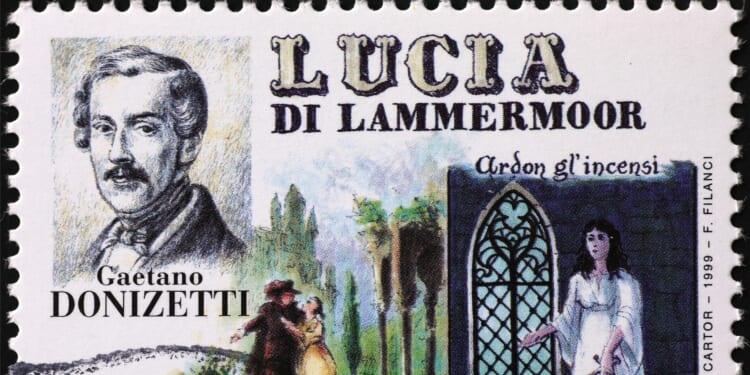
![Scott Bessent Explains The Big Picture Everyone is Missing During the Shutdown [WATCH]](https://www.right2024.com/wp-content/uploads/2025/11/Scott-Bessent-Explains-The-Big-Picture-Everyone-is-Missing-During-350x250.jpg)



